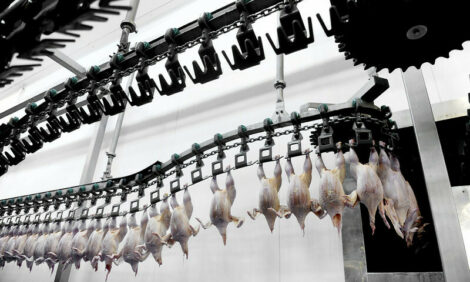



Pork Industry Says Environmental Program Hasn’t Helped
WASHINGTON, D.C. - The National Pork Producers Council today offered senators some tough criticisms of the 2002 Farm Bill’s flagship conservation program, noting its failure to help pork producers comply with environmental regulations.In testimony before the Senate Committee on Agriculture, Nutrition and Forestry, NPPC Environment Committee Chairman Randy Spronk, a pork producer from Edgerton, Minn., said that the primary environmental assistance program for the agriculture industry – the Environmental Quality Incentives Program (EQIP) – has done little for pork producers, and he offered to work with the committee on the problem in the 2007 Farm Bill reauthorization.
The pork industry has met or exceeded state and federal regulatory requirements, Spronk pointed out, and pork producers are protecting water quality. Pork producers strongly supported the increased funding for EQIP that was included in the 2002 Farm Bill and looked forward to using EQIP to help them adopt more environmental practices.
Despite that funding increase, “EQIP has made only a minimal contribution to pork producers’ environmental efforts,” Spronk told the Agriculture Committee. “We think EQIP is missing a tremendous opportunity to have a dramatic effect on the environment by failing to work with producers who are ready to take their [environmental] performance to the next level.”
In 2003, 2004 and 2005, pork producers received just 3 percent of the EQIP cost-share assistance provided to all livestock producers – $43 million of the $1.26 billion allocated. That share was less than the amount received by goat, emu, ostrich, elk and bison producers.
NPPC is conducting a detailed review of EQIP and why it has not been beneficial to pork producers. Among the preliminary observations NPPC shared with the committee were:
-
Compared with other livestock species, pork producers already have invested in sound manure management systems. (Manure is a top environmental issue for livestock producers.)
-
EQIP funds generally are not available for mobile equipment, which is one of pork producers’ greatest needs to better manage and apply manure.
-
EQIP in several states has not integrated USDA’s commitment to comprehensive nutrient (manure) management plans and has not provided enough money for producers to use technical service providers to prepare such plans.
-
Because of their high costs, it often is economically infeasible to purchase air emissions mitigation technologies with the limited EQIP funds.
“NPPC and pork producers want EQIP to succeed,” said Spronk. “It holds considerable promise, particularly as we head into a possible period of needing assistance to help livestock producers reduce air emissions that are regulated under the Clean Air Act.”
Source: National Pork Producers Council (NPPC) - 8th June 2006






